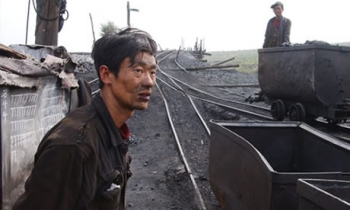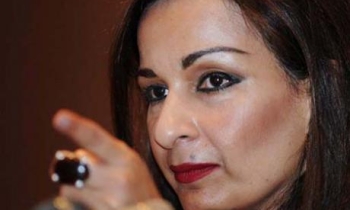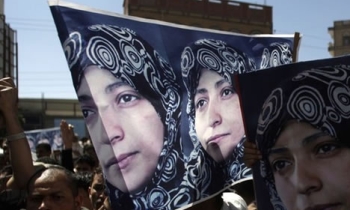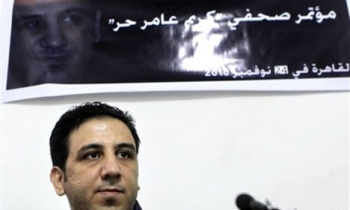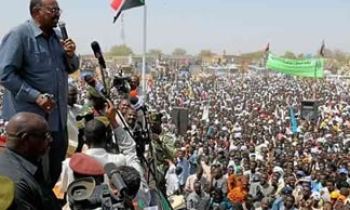Reporters sans Frontières (RSF) on Thursday expressed shock at the conditions in which the trial of the alleged killers of Hrant Dink was being held after attending the 12th hearing in the case on February 8.
Dink, a Turkish journalist of Armenian origin, was shot dead in Istanbul on January 19, 2007. He was the editor of the bi-lingual Turkish-Armenian newspaper Agos and a critic of Turkey’s denial of the 1915 Armenian genocide.
“The physical conditions – the cramped courtroom, the attitude of the judges, some of whom are asleep, the casual attitude of the accused – all show the lack of will to accept the gravity of the facts under examination," Paris-based RSF said.
“Moreover the slowness of the examination, during which information requested long ago from the various administrations has still not been produced, gives rise to serious suspicions, along with the fact that vital witnesses have still not been questioned, either because the judges are against it, or because they have failed to summon them," it continued.
The February 8 hearing before the 14the chamber of the Istanbul assize court, at which a turning point in the investigation of Dink’s murder had been expected, turned out to be extremely disappointing.
The trial judges, who under the Turkish system are also the examining judges, have shown a striking lack of motivation and commitment. “The “secret witness” who was to have been produced at the hearing was not summoned since the prosecutor had not given police the necessary instructions about it. The day after the trial, the chairman of the court, Erkan Canak, said that the witness could not appear because “his Armenian interpreter had not been invited to attend”.
Further, the judges refused to hear three top ranking intelligence officials from Ankara, Istanbul and Trabzon, whose evidence had been demanded by lawyers representing the Dink family. Everything points to the fact that these service heads and of the Trabzon gendarmerie knew about a plot to assassinate Dink and the identity of the killers and that they failed to take adequate steps to protect him. The key issue of complicity within the state apparatus therefore remains unresolved. Even more worryingly, the court seems determined to avoid all mention of state responsibility in the case.
The lawyer Fethiye Çetin again called for the investigation to be extended to cover aspects from other cases linked to ultra-nationalist circles and the “deep state” (the Ergenekon conspiracy trial, plans for killings of minorities, attacks on Trabzon’s Christian community…). The Istanbul prosecutor’s office is due to react to these requests shortly.
The three witnesses, Turan Meral, Orhan Ozbas and Kaan Gerçek, who previously stated that the gunman Ogün Samast had told them he intended to kill Dink showing them the murder weapon, later retracted. During their journey to the court, a police officer allowed them to discuss the case with the alleged gunman.
Ankara’s intelligence service has refused to provide the telephone numbers of agents who were in contact with the man who allegedly ordered the killing, Erhan Tuncel, arguing that giving this “state secret” could put the lives of its staff in danger.
“Everything is going on as if those who are responsible for rendering justice were obstructing it. We are outraged by the fact that the public ministry, so quick to prosecute and convict Hrant Dink when he raised undeniable historical facts (the 1915 Armenian genocide) should be so slow to find and try all those who fomented and perpetrated the murder of this man in broad daylight in Istanbul!” RSF said.
Some 700 demonstrators, including the families of around 20 Turkish intellectuals who have been murdered in the past 50 years, rallied in Besiktas square close to the court house in which the hearing was taking place, to demonstrate their solidarity with Dink family and to demand the end to impunity.
These activists, who call themselves the “deep family” of Hrant Dink, were Thursday set to send a delegation to the Turkish parliament to demand the establishment of a parliamentary commission to probe political murders.

